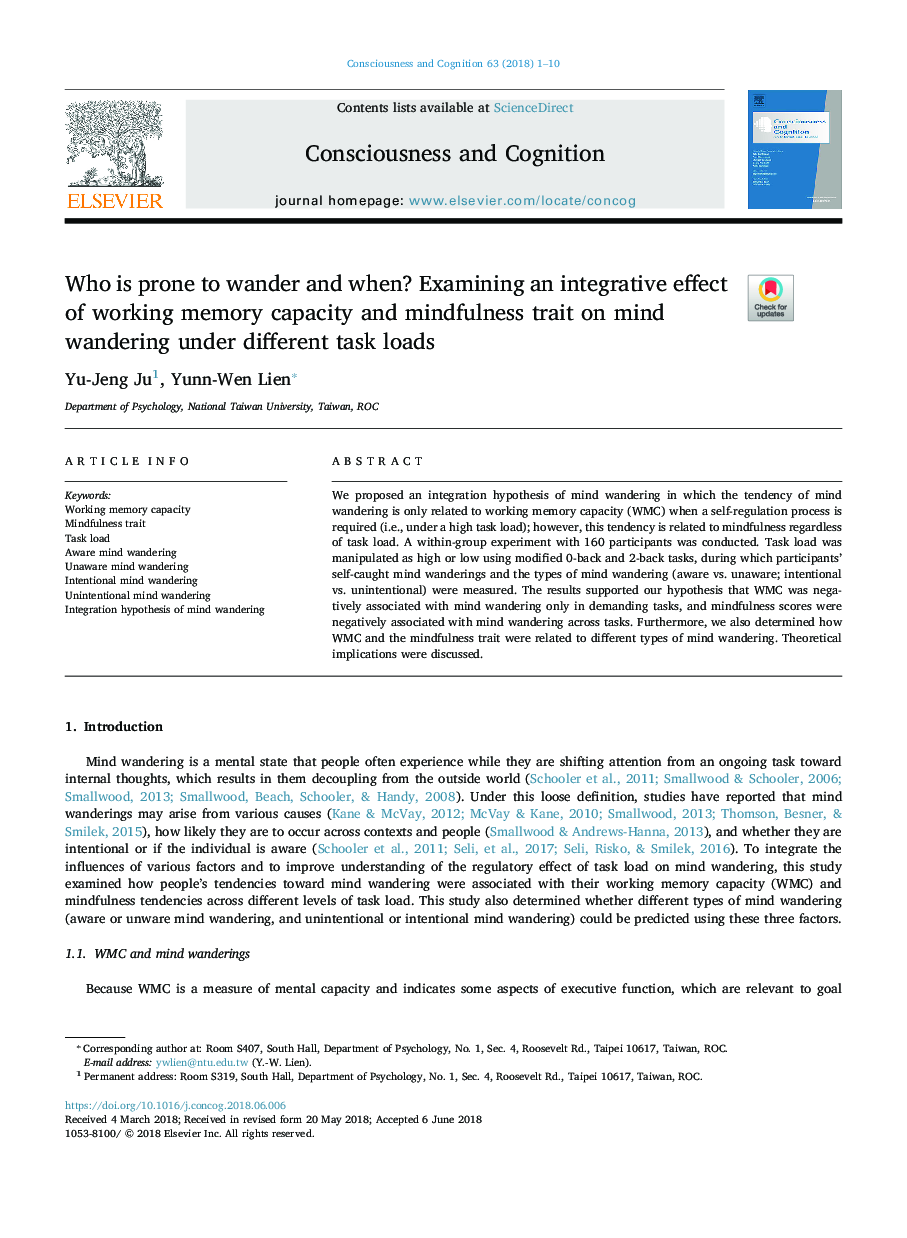| Article ID | Journal | Published Year | Pages | File Type |
|---|---|---|---|---|
| 7287752 | Consciousness and Cognition | 2018 | 10 Pages |
Abstract
We proposed an integration hypothesis of mind wandering in which the tendency of mind wandering is only related to working memory capacity (WMC) when a self-regulation process is required (i.e., under a high task load); however, this tendency is related to mindfulness regardless of task load. A within-group experiment with 160 participants was conducted. Task load was manipulated as high or low using modified 0-back and 2-back tasks, during which participants' self-caught mind wanderings and the types of mind wandering (aware vs. unaware; intentional vs. unintentional) were measured. The results supported our hypothesis that WMC was negatively associated with mind wandering only in demanding tasks, and mindfulness scores were negatively associated with mind wandering across tasks. Furthermore, we also determined how WMC and the mindfulness trait were related to different types of mind wandering. Theoretical implications were discussed.
Keywords
Related Topics
Life Sciences
Neuroscience
Cognitive Neuroscience
Authors
Yu-Jeng Ju, Yunn-Wen Lien,
